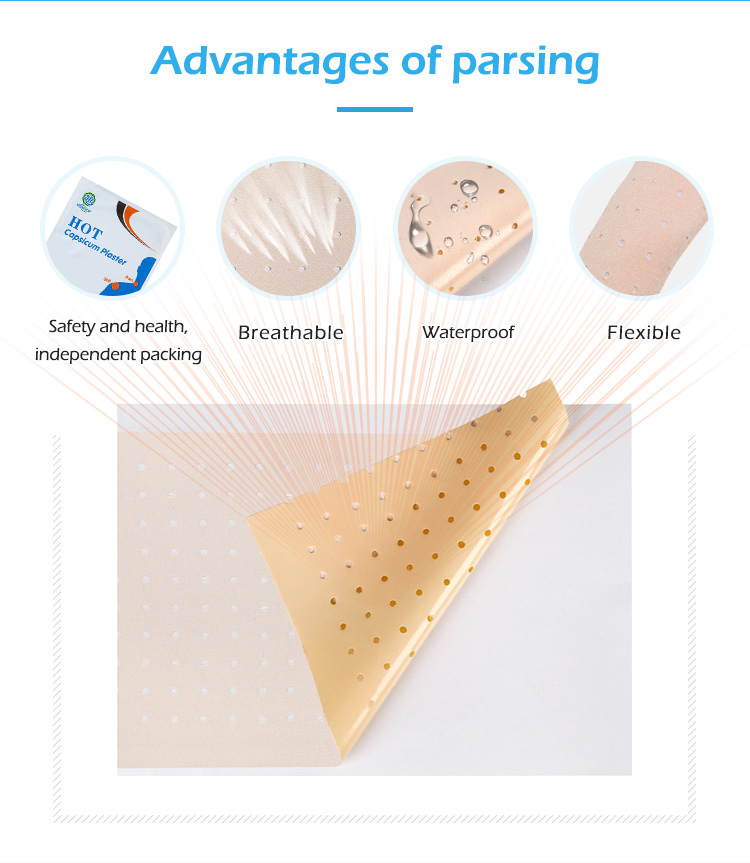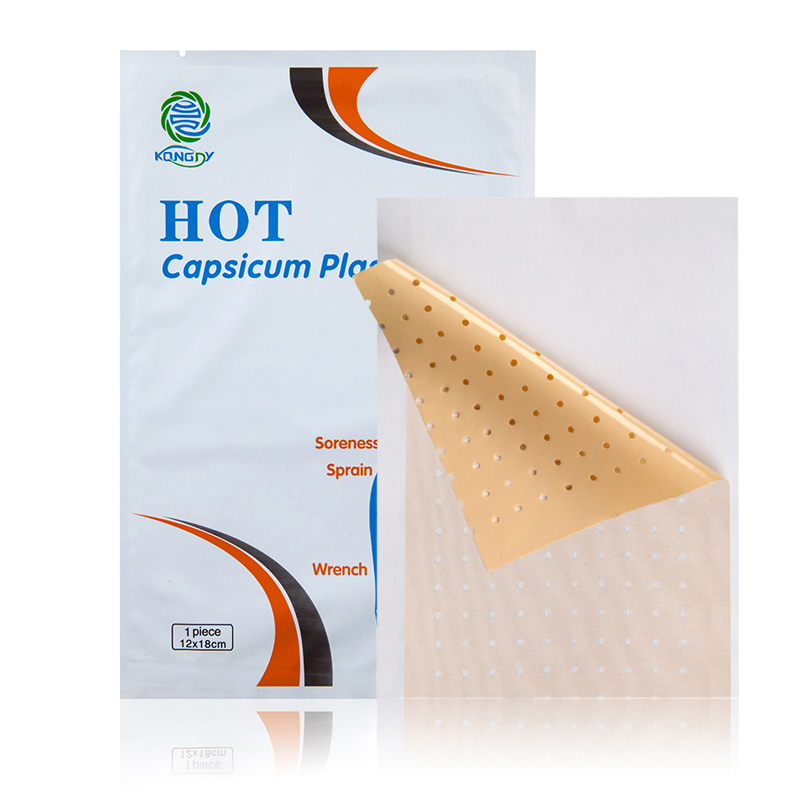What Factors Should I Consider When Evaluating an OEM’s Production Capacity?
When partnering with an Original Equipment Manufacturer (OEM) for the production of your Hot Capsicum Plasters, one of the most critical aspects to evaluate is the OEM’s production capacity. The ability of the Hot Capsicum Plaster Manufacturer to meet your production demands, maintain product quality, and scale as your business grows is essential to your success. Whether you’re looking to develop a Custom Hot Capsicum Plaster, a Private Label Hot Capsicum Plaster, or mass-produce standard products, understanding the production capabilities of your OEM is a crucial first step.
In this article, we will explore the key factors to consider when evaluating the production capacity of a Hot Capsicum Plaster OEM, ensuring you select the right partner to meet your business needs.

1. Production Volume Capabilities
The first factor to assess is the OEM’s ability to handle the volume of production you require. Every Hot Capsicum Plaster Supplier will have different capabilities in terms of how much they can produce on a daily, weekly, or monthly basis. Understanding their volume capabilities is essential for ensuring that they can meet your current demand and scale as your business grows.
Minimum Order Quantity (MOQ): Many Hot Capsicum Plaster OEMs have a minimum order quantity, which can vary depending on the complexity of the product and the manufacturer's capacity. Make sure the MOQ aligns with your budget and business goals.
Maximum Production Capacity: Evaluate whether the OEM can meet peak demand without compromising on quality. Ask for specific numbers on how many Private Label Hot Capsicum Plasters they can produce in a set timeframe to ensure they can handle large orders.
Scalability: Your production needs may increase as your business grows. It's crucial to know if the OEM can scale production to meet increasing demand without significant delays or quality degradation. A Hot Capsicum Plaster Manufacturer that has flexibility in scaling production will be a better long-term partner.
2. Manufacturing Facilities and Equipment
The physical infrastructure and equipment of the Hot Capsicum Plaster Manufacturer directly affect their production capacity and product quality. Understanding the size of their facilities, the number of production lines, and the type of machinery they use is vital for evaluating their production capabilities.
Modern Equipment: Modern machinery tends to be more efficient, ensuring faster production times while maintaining high-quality standards. If you're working with a Custom Hot Capsicum Plaster that has specific formulation needs, ensure the OEM has the right equipment for precise ingredient mixing and packaging.
Automation vs. Manual Labor: Find out whether the Hot Capsicum Plaster Supplier uses automated processes or relies heavily on manual labor. Automation generally results in faster and more consistent production, but some Custom Hot Capsicum Plasters may require manual processes for specific customizations.
Facility Size and Layout: A large facility with dedicated production lines for different products allows for better workflow and reduced production times. If the Hot Capsicum Plaster Manufacturer has a cramped or outdated facility, it could affect their ability to produce large volumes efficiently.
3. Quality Control and Compliance
Production capacity isn’t only about quantity—maintaining quality standards is equally important. A reliable Hot Capsicum Plaster OEM should have stringent quality control measures in place to ensure that each product batch meets the required specifications and safety standards.
Good Manufacturing Practices (GMP): Ensure that the Hot Capsicum Plaster Manufacturer adheres to GMP guidelines. GMP-certified manufacturers follow strict protocols to ensure products are consistently produced and controlled according to quality standards.
Quality Assurance Processes: Ask the OEM about their quality assurance processes, including testing protocols for raw materials, in-process monitoring, and post-production testing. A strong quality assurance program ensures that your Private Label Hot Capsicum Plasters are free from defects and safe for consumer use.
Compliance with Regulations: The manufacturer should comply with local and international regulations governing the production of medical devices or health-related products, such as capsicum plasters. This is particularly important if you plan to distribute your products globally, as different markets have varying compliance requirements.
4. Lead Times and Delivery Schedules
One of the most important aspects of production capacity is the manufacturer’s ability to meet deadlines. Long lead times or delayed deliveries can cause disruptions to your supply chain, affecting your ability to meet customer demands.
Production Lead Time: How long does it take the Hot Capsicum Plaster OEM to complete an order from start to finish? Shorter lead times are essential for staying competitive in fast-moving markets. However, it’s crucial to balance speed with quality to avoid rushed production that could lead to defects.
On-Time Delivery Rate: Ask the OEM about their track record for meeting delivery deadlines. An OEM with a high on-time delivery rate demonstrates good production planning and supply chain management, which are critical for avoiding disruptions.
Inventory Management: Some Hot Capsicum Plaster Suppliers offer inventory management services, where they maintain a stock of your Private Label Hot Capsicum Plasters and ship them to you as needed. This can help reduce lead times and ensure you have a steady supply of products.
5. Customization Capabilities
If you are looking to create a Custom Hot Capsicum Plaster, you’ll need to assess whether the OEM has the capacity to handle custom formulations, packaging, and branding. Not all Hot Capsicum Plaster Manufacturers are equipped to produce customized products, so it’s crucial to confirm that they have the necessary resources.
Custom Formulations: The ability to work with a Hot Capsicum Plaster Supplier that can handle custom formulations is essential if you want to differentiate your product. Whether you need a specific concentration of capsicum or additional ingredients like menthol or camphor, make sure the OEM has the technical expertise and equipment to meet your formulation needs.
Custom Packaging: Many Private Label Hot Capsicum Plasters require unique packaging to stand out in the market. Ensure that the OEM offers flexible packaging options, including different sizes, materials, and branding opportunities.
Product Development Support: Some Hot Capsicum Plaster OEMs offer product development services, where they can assist with formulation, testing, and branding. This can be particularly useful if you’re developing a new product line or entering the market for the first time.
6. Supply Chain Management
A manufacturer’s production capacity is closely linked to its supply chain efficiency. Raw material availability, production inputs, and shipping logistics all affect how quickly and efficiently an OEM can produce your Hot Capsicum Plasters.
Reliable Raw Material Sourcing: Capsicum, adhesives, and other materials required for Hot Capsicum Plasters need to be sourced reliably to avoid production delays. Ensure that the OEM has a robust supply chain with multiple suppliers to minimize the risk of shortages.
Logistics and Shipping Capabilities: The OEM’s logistics network should be able to handle the timely shipment of products to your desired locations. Inquire about their shipping partners, lead times for international deliveries, and any partnerships that can expedite the process.
Inventory and Stock Management: Evaluate how the Hot Capsicum Plaster Manufacturer manages its inventory of raw materials and finished products. Strong inventory management helps ensure that materials are always available for production, reducing the risk of delays.
7. Flexibility and Responsiveness
A key factor in assessing an OEM’s production capacity is their ability to adapt to your business needs. Markets can be volatile, and demand can fluctuate, so you need a Hot Capsicum Plaster Supplier who can adjust their production capacity quickly.
Handling Sudden Demand Increases: Can the OEM handle sudden increases in demand, such as during promotional campaigns or seasonal spikes? Flexible manufacturers can ramp up production quickly to meet your needs.
Responsiveness to Issues: In the event of production issues, such as delays or quality problems, how responsive is the OEM? A manufacturer with good communication and problem-solving skills can address issues before they escalate.
Conclusion
Evaluating the production capacity of a Hot Capsicum Plaster OEM is a critical step in ensuring the success of your product line. From assessing their production volume capabilities and quality control processes to ensuring they can meet lead times and handle customizations, a thorough evaluation will help you select the right partner. By working with a reliable and capable Hot Capsicum Plaster Manufacturer, you can streamline production, maintain product quality, and scale your business effectively.
Related Questions and Answers:
How do I assess an OEM’s production capacity for Hot Capsicum Plasters?
- You should evaluate their production volume, scalability, facility size, and equipment to ensure they can meet your demand and scale as needed.
What is the importance of quality control in Hot Capsicum Plaster manufacturing?
- Quality control ensures that each product meets safety and efficacy standards, reducing the risk of defects and ensuring customer satisfaction.
How can a Hot Capsicum Plaster Supplier handle large orders?
- A capable supplier will have the necessary infrastructure, equipment, and scalability to handle large production volumes without sacrificing quality.
Can an OEM handle custom formulations for Hot Capsicum Plasters?
- Yes, but you need to confirm that the OEM has the expertise and equipment to develop and produce custom formulations according to your specifications.
What factors affect an OEM’s ability to meet delivery deadlines?
- Factors include production lead times, supply chain efficiency, and inventory management, all of which can impact whether the OEM can deliver products on time.






